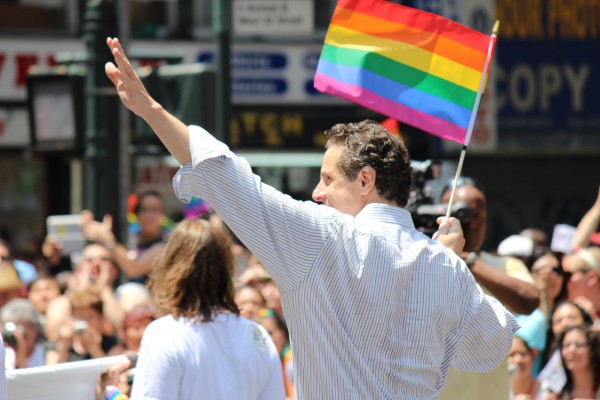
Gov. Andrew Cuomo recently issued an executive action designed to protect transgender people from discrimination in New York State (NYS). At an Oct. 22 dinner with the Empire State Pride Agenda, an LGBTQIA+ advocacy group, Cuomo ordered an amendment to NYS’s current civil rights laws. The governor also advocated in favor of the Gender Expression Non-Discrimination Act (GENDA), which would operate as part of NYS’s Human Rights Law, according to his official news release. GENDA would affirm that transgender individuals are protected statewide, and that public and private employers, housing providers, businesses and creditors cannot discriminate against anyone on the basis of their gender identity.
Despite Cuomo’s call for action, passing GENDA comes with a distinct set of obstacles— and for policymakers in Albany, these obstacles aren’t new. The New York State Assembly, controlled by Democrats, regularly approved bills like GENDA in the past, only to “find [them] stymied by the State Senate, where Republicans are in charge,” reporter Jesse McKinley said in an article from The New York Times. To enact GENDA, the bill must pass through both branches of state government.
During his speech at Pride Agenda’s dinner, Cuomo noted New York State’s history of progressive movements for equality, including the 1848 Seneca Falls Convention for women’s rights as well as the birth of the National Association for the Advancement of Colored People (NAACP) in 1909.
“We [New York State] are the national and international capital of diversity and inclusion,” Cuomo said. “Included in the premise of diversity is the promise of equality for everyone.”
But for Cuomo, fellow Democrats and activists in the LGBTQIA+ community, the state has yet to fulfill this promise. Previous legislation aimed to protect lesbian, gay and bisexual individuals excluded one key part of the famous acronym: the T, which stands for transgender. This was the impetus for his executive order, Cuomo said, and it’s the reason why his administration is urging policymakers in Albany to pass GENDA. The governor called NYS’s current human rights laws “not fair, not right, [and] not legal” for the transgender community.
According to statistics found on Pride Agenda’s website, 75 percent of transgender workers in New York have experienced harassment at work. Seventeen percent of transgender New Yorkers have been denied medical services. These incidents of outward discrimination come with serious and palpable repercussions, too. A 2012 study from the Program in Human Sexuality at the University of Minnesota Medical School found that transgender women are six times more likely to experience depression than the general population. Likewise, a 2005 survey of over 180 transgender people from the Health & Social Work academic journal determined that 30.1 percent of those surveyed had attempted suicide.
Cuomo’s announcement at the conference also comes after increased visibility of transgender celebrities, and of violence against the transgender community. Transgender celebrities like Caitlyn Jenner and Janet Mock rose to fame in popular media as icons of the movement for transgender equality. Activists on platforms like Twitter, Facebook and Tumblr continue to push for public awareness of violence against transgender women by spreading the names of transgender women who are murdered in the U.S. across social media.
